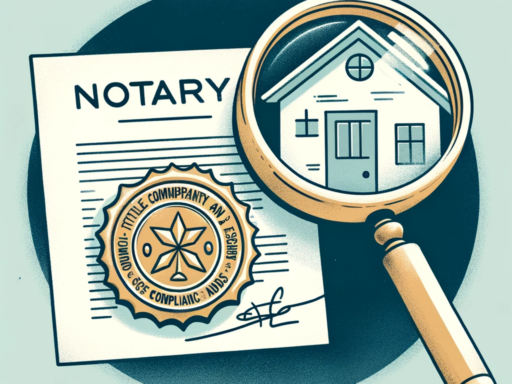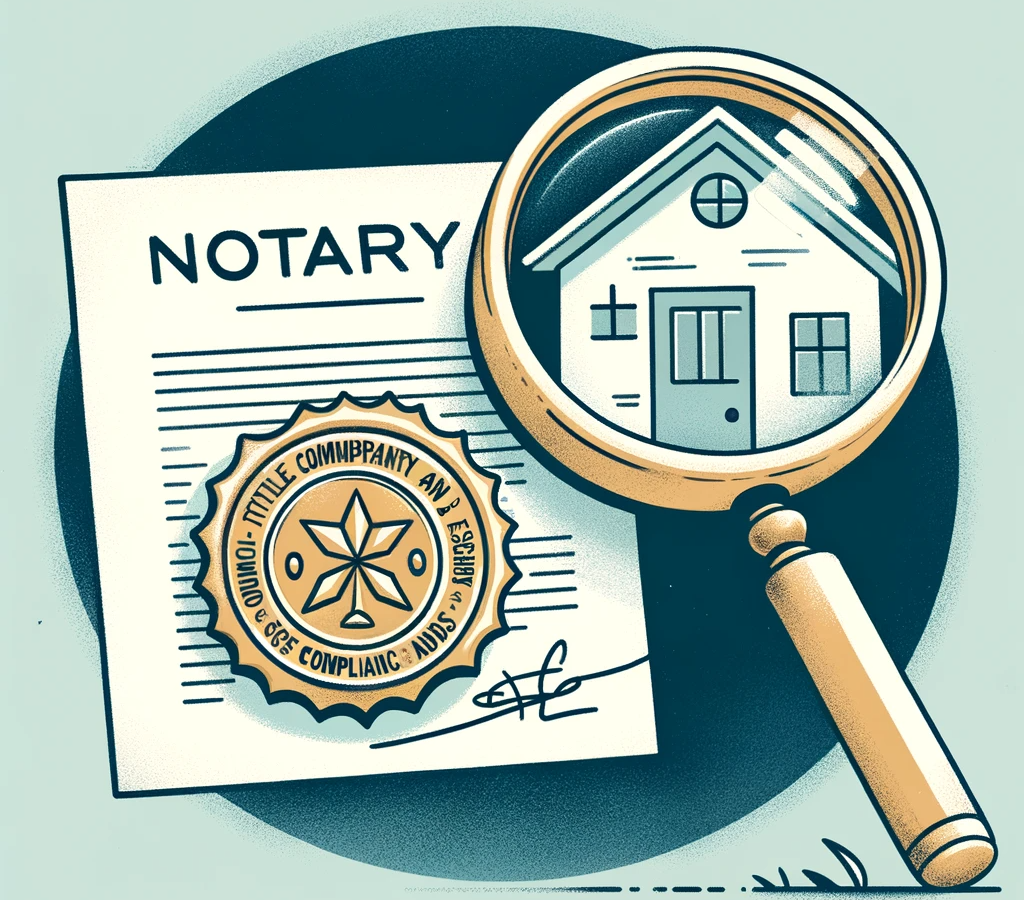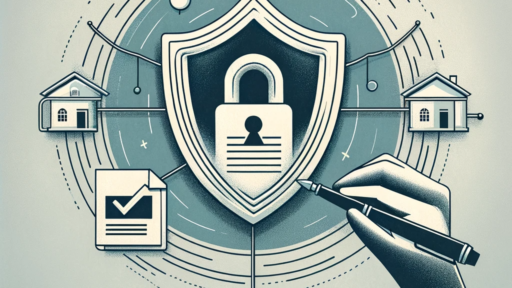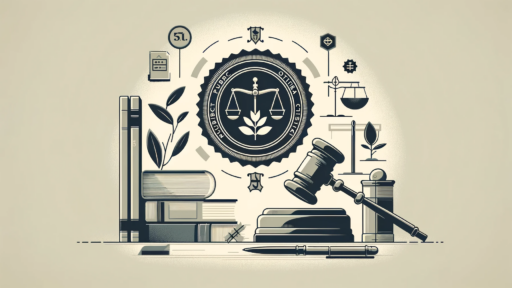In real estate transactions, the title company and escrow play critical roles.
These entities ensure that all parties involved in a transaction meet their obligations and that the property transfer is smooth and legally sound.
One key aspect of this process is notarization.
This article delves into the importance of notarized documents in title and escrow compliance and audits.
Key Takeaways
a) Notarization is vital in title company and escrow compliance.
b) A notarized title adds a layer of security to real estate transactions.
c) Online notary services, like BlueNotary, have revolutionized the notary process.
Notarization’s Role in Title Company and Escrow Compliance
It is quite a huge deal with notaries public in the whole field of escrow services and title companies
The notary public, in the course of their duties, not only contributes to the legal and fair finalization of the transactions but also acts as an impartial third-party witness who verifies the signing of the documents.
Firstly, the notary has two main tasks: one is that of the verifier of the signers‘ identities, which excludes any possibility of identity theft or any other type of fraud.
The second is that those signatories are not only intelligibly aware of what they are putting their signature to, but also they are voluntarily doing so.
It is a clear indication that everyone involved in the transaction is fully involved and has no doubts about their rights and obligations.
The people are not being pushed or in any way otherwise ill-treated in the process.
Here the notarization would mean that the full observance of compliance in the area of title company and escrow services.
The method, as a matter of fact, guarantees the legal and secure transfer of property titles from the owners to new ones by blocking fake and dishonest acts.
Furthermore, it empowers the title companies to be compliant, thus allowing them to meet their legal obligations, which in turn strengthens their marketplace image.
Notarization’s Role in Title Company and Escrow Audits
Notarial certification of title documents in several existing audits presents a point of significance.
An audit is an organized and independent inspection of the company’s operations and procedures to ensure that the company is following the law, regulations, and generally accepted industry practices.
Notarized signatures represent a form of certainty that a company is complying with the laws and regulations in the audit process.
Through the main focus of this prevention, an audit report is drawn up, the auditors will query the authentication of all the papers they think are required, besides the identity of the signers, checking if the voluntary nature of their agreement, and finding out if they understood what the document was about.
The review process confirms that not only are transactions legal but they also are transparent and fair.
This is the process of knowing if the company is still following the moral and legal requirements of the industry throughout its operations.
Declaring the overall reliability of the operations of the company.
The Rise of Online Notary Services
For instance, BlueNotary is a web-based tool that has redefined notary services through its impeccable components.
One clear-cut benefit is that digital notarization cuts the time required for Title and Escrow paperwork coverage without a personal presence.
It is thus that we take advantage of online notary services to handle our transactions, especially when we are overwhelmed with the locations of the involved parties.
It is not necessary that both parties have to be together in person when signing a document electronically.
Therefore, services such as BlueNotary that have been a solution to the online document notarization issue become the only source for such convenience and speed in the process.
It’s really not only a matter of convenience. Moreover, the legal safety of notarization is guaranteed by online notary services.
The aim is that these services will be fully compliant with all the laws in place.
That being said, eventually, they will bind the same rights and levels of safety that the manual way of notarization gives.
Basically, the ascendancy of online notary services can be looked at as the ultimate fusion of convenience and legal security in the virtual era.
Decisively, it indicates how technology is capable of metamorphosing traditional systems into a more effective and more reachable form still maintaining their legal duty.
Blue Notary: Your Partner for Title and Escrow Document Notarization
BlueNotary is an innovative online notary service that has changed the way notarization is done by digitizing it, speeding it up, and making it very comfortable.
The service is also a great help for the real estate industry that are looking to get documents notarized by a notary without going through the complications of traditional face-to-face meetings or the limitations of some geographical entities.
Working with BlueNotary is very easy.
You start by choosing the document you need notarized, and you can do this by using the secure platform that we provide you with.
Next, the personal details necessary for the identity verification, which is the most important stage in assuring the legality of the notarization process.
After confirming your identity, you will be linked via a video call to a notary public who is licensed.
The notary will be the one to give you full instructions of the signing process, watch your signature virtually, and then do online notarization of your document.
This is the process that completely follows the legal requirements and takes care of the issue of the document’s legality, as if it were notarized in the traditional way.
You will find the notarized document for download and if needed be sent to the relevant people directly.
This simple method of notarization has no presence of the people involved, and the benefit gained is that it has made BlueNotary very accessible to those interested in the secure, fast, and workable notarization service they are seeking for.
Frequently Asked Questions
What is a title company’s role in real estate transactions?
A title company ensures that the title to a piece of real estate is legitimate so it may be transferred from the seller to the buyer.
How does notarization prevent fraud in real estate transactions?
Notarization serves as an extra layer of fraud prevention by verifying the signers’ identities and ensuring that they understand and agree to the terms of the document.
What does an escrow company do?
An escrow company acts as a neutral third party that holds and regulates the payment of funds between two parties in a transaction.
What is the role of audits in title companies?
Audits in title companies ensure compliance with legal and regulatory standards, assess the effectiveness of controls in place, and identify areas for improvement.
The role of notarization in title company and escrow compliance and audits cannot be overstated.
It’s a fundamental process that ensures the legality and integrity of real estate transactions.
With the rise of online notary services nearby, this process has become even more efficient and accessible.
As the industry continues to evolve, the importance of notarization remains a constant, underpinning the security and trustworthiness of every transaction.








